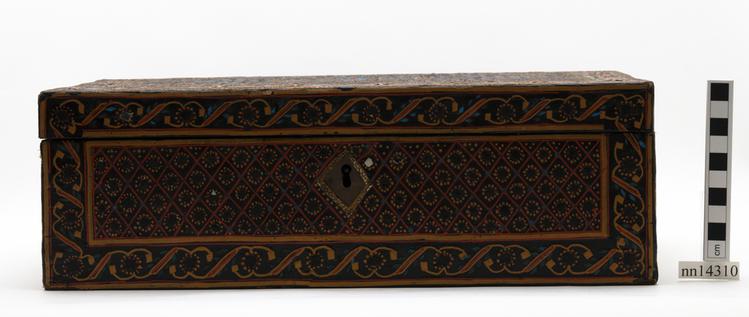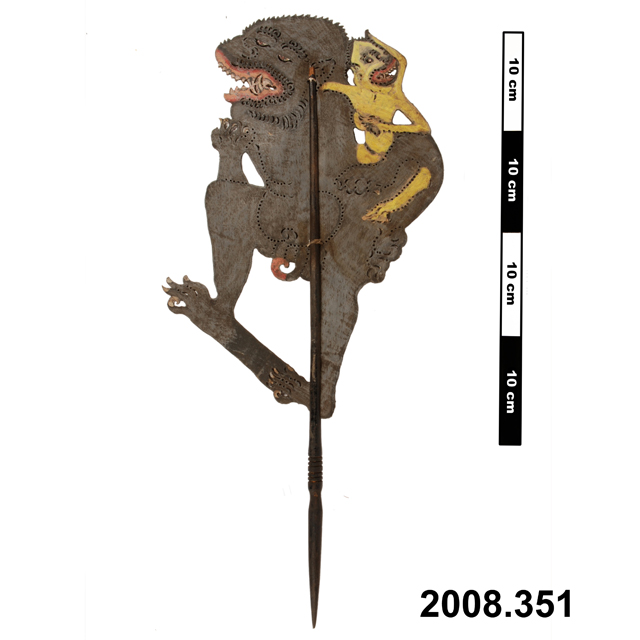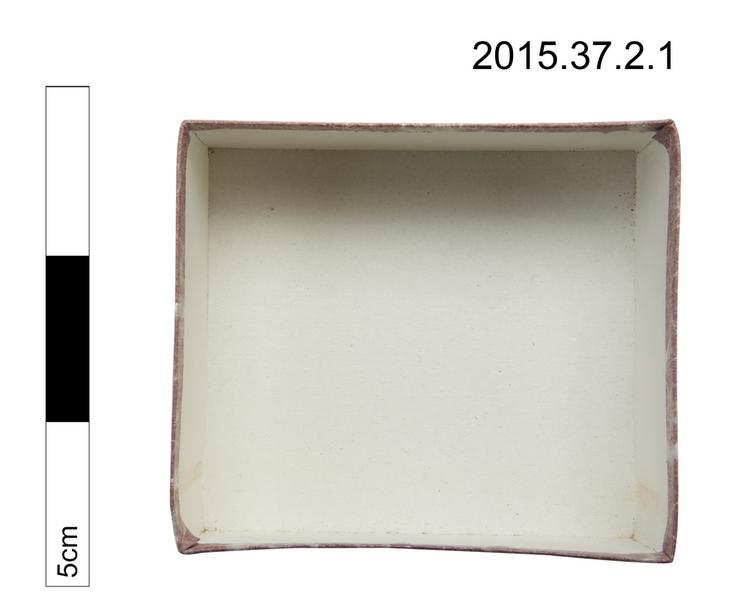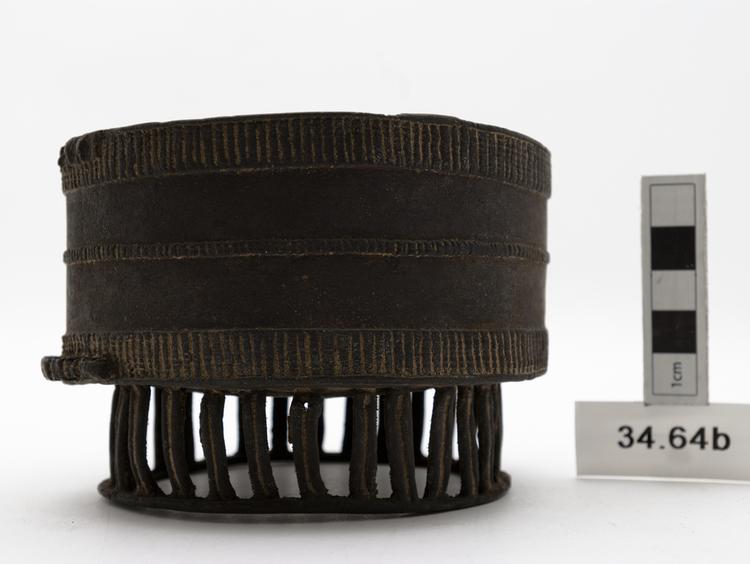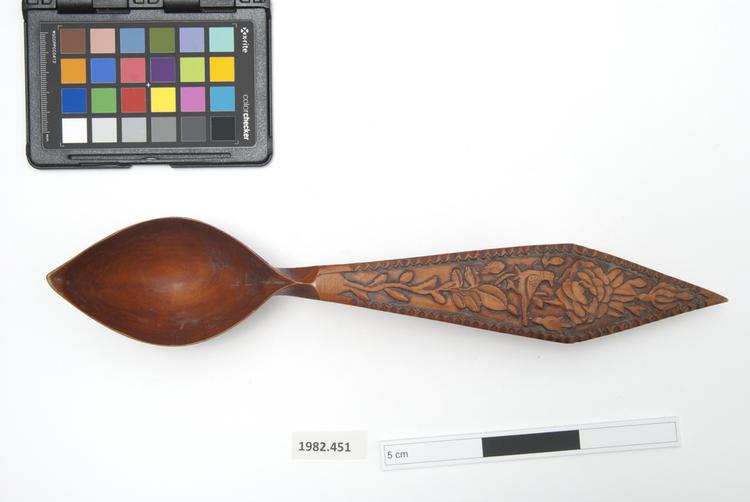
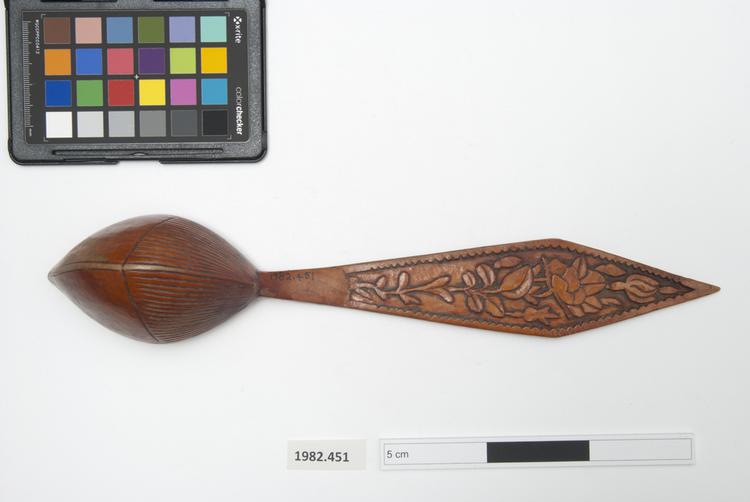
Wooden sherbet spoon (‘qashuq’) , with an elaborately carved handle. The bowl is leaf-shaped and deep, and the reverse is decorated with a pattern of incised vertical lines on the lower half. The handle is in the shape of a flat, elongated diamond. The top side is carved with a floral design featuring a bird, and has a decorative border. The underside has a scalloped decorative border, and a carved panel in the centre featuring a floral design. There is some wear to the underside of the bowl.
This carefully carved spoon was used for drinking sherbet. Typically sherbet would be presented in a ceramic basin with the bowl of the spoon floating on the liquid’s surface and the handle resting on the basin’s edge. A guest would drink from the spoon, then place it back in the basin for other guests to use. Spoons like this example are associated with the Iranian town of Abadah, although there is nothing to specifically link it to the town. In the nineteenth century Abadah was famous for its elaborately carved sherbet spoons (‘qashuq’) and many were collected by European travelers as they made easily transportable craft objects. Abadah spoons were carved form pear or box wood, but we do not know what wood was used in this example.



